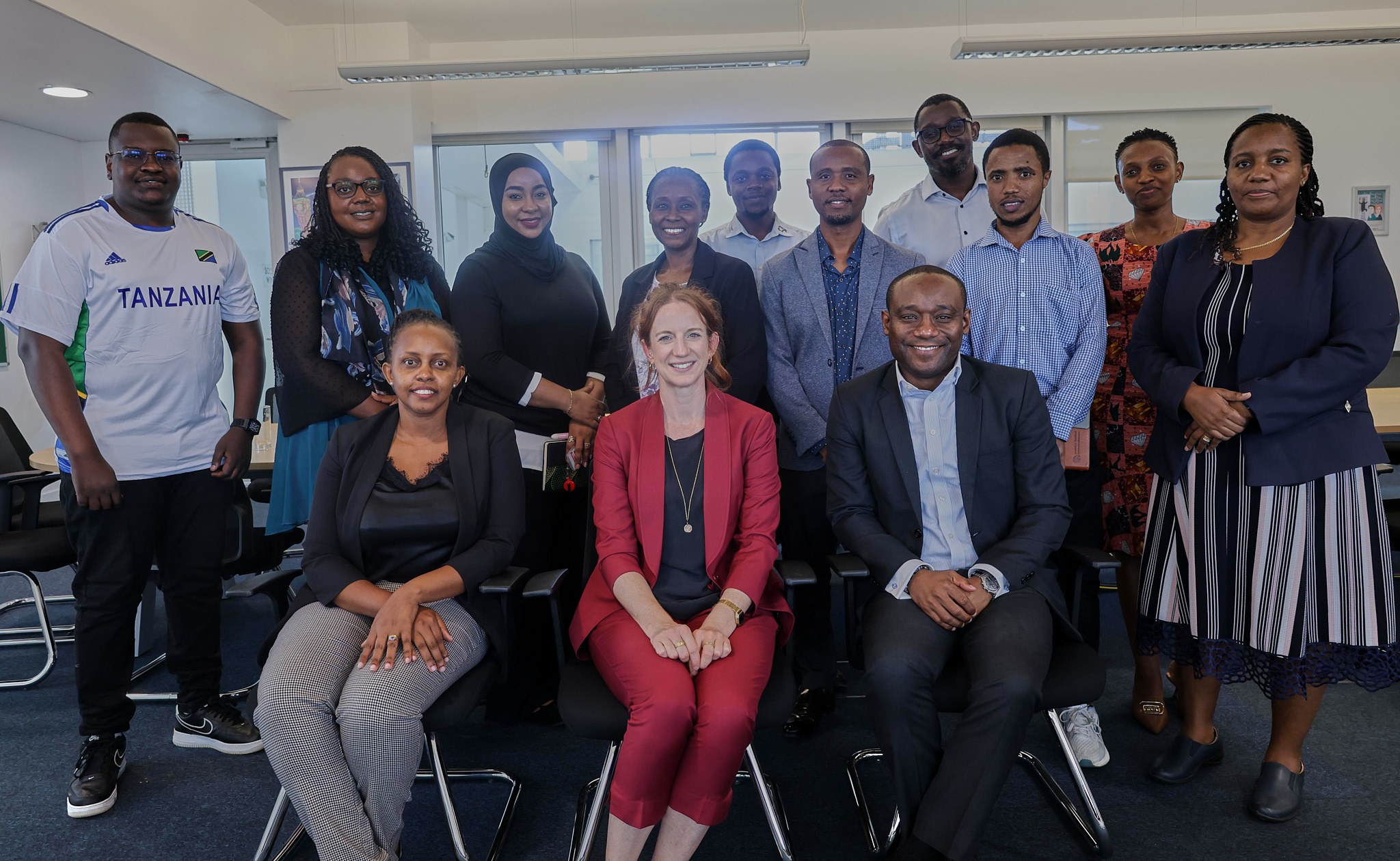
FORUM: Ifakara at World Health Assembly side event on genomics in health

The Ifakara Health Institute participated in a key side event during the 78th World Health Assembly (#WHA78), titled "Genomics in Health: Advancing Science, Policy and Investment through Global Health Governance."
The 2025 WHA is scheduled for Geneva, Switzerland, from 19–27 May, under the theme "One World for Health."
This 90-minute session, hosted at the British High Commission in Dar es Salaam, was part of the Science Summit at WHA. It brought together global leaders in health policy, science, and investment to explore the transformative role of genomics in global health.
Organizers and participants
The meeting was organised by the Tanzania High Commission to the UK, the British High Commission to Tanzania, Imperial College London, the Muhimbili University of Health and Allied Sciences (MUHAS), and ISC Intelligence in Science. From Imperial College London, George Christophides, Faith Osier, Rutendo Muzambi, and Steven Okoli contributed expert insights across the panels.
Representing Tanzanian research institutions, Florence Urio from MUHAS and Said Aboud from the National Institute for Medical Research (NIMR) offered valuable local perspectives.
Opening remarks by Ambassador Kairuki
Ambassador Mbelwa Kairuki, Tanzanian High Commissioner-designate to the United Kingdom, opened the meeting by thanking participants for attending this important event.
He emphasized that the meeting reflected 60 years of partnership between the British and Tanzanian governments—a partnership that, he noted, had yielded significant achievements in tackling public health challenges in Tanzania. He urged participants to use the event as a platform to strengthen these partnerships even further.
Genomics in the fight against malaria, sickle cell
The discussion focused on how genomics can address high-burden diseases such as malaria and sickle cell disease, as well as accelerate vaccine development.
Participants emphasized the importance of strengthening collaboration between African and global scientific institutions to advance genomics research and its practical application.
The conversation also covered how genomics could enhance health systems, support universal health coverage, and boost pandemic preparedness.
In addition, speakers highlighted the need for increased investment in science and the alignment of genomics efforts with global policy platforms such as the UN General Assembly and the upcoming Fourth International Conference on Financing for Development (UNFfD4).
Ifakara shares insights on vaccine trials, gene drives
Representing the Ifakara Health Institute, Dr. Ally Olotu contributed to a panel on Genomics and Immunology: The Malaria Vaccine, where he shared updates from Ifakara’s vaccine clinical trials, specifically on the RTS,S and R21/Matrix-M vaccines.
Dr. Brian Tarimo and Dr. Dickson Lwetoijera participated in the Gene Drive for Malaria panel, where they presented innovative work in vector control, including the potential of gene drive technologies to accelerate malaria elimination efforts across Africa.
Closing remarks by British envoy
In her closing remarks, Sally Hedley, British Deputy High Commissioner to Tanzania, commended the efforts underway in the fight against malaria and sickle cell disease.
She underscored the importance of continued investment and collaboration in genomics and emphasized the critical role of policymakers in creating an enabling environment for scientific research—an essential factor in addressing complex public health challenges.
About the World Health Assembly
According to the World Health Organization, “The World Health Assembly is the decision-making body of the World Health Organization (WHO). Attended by delegations from all WHO Member States, it focuses on a specific health agenda prepared by the Executive Board. Its main functions include setting WHO policies, appointing the Director-General, supervising financial matters, and approving the programme budget. The Health Assembly is held annually in Geneva, Switzerland.”
(Source: World Health Organization)
Learn more here: Seventy-eighth World Health Assembly
